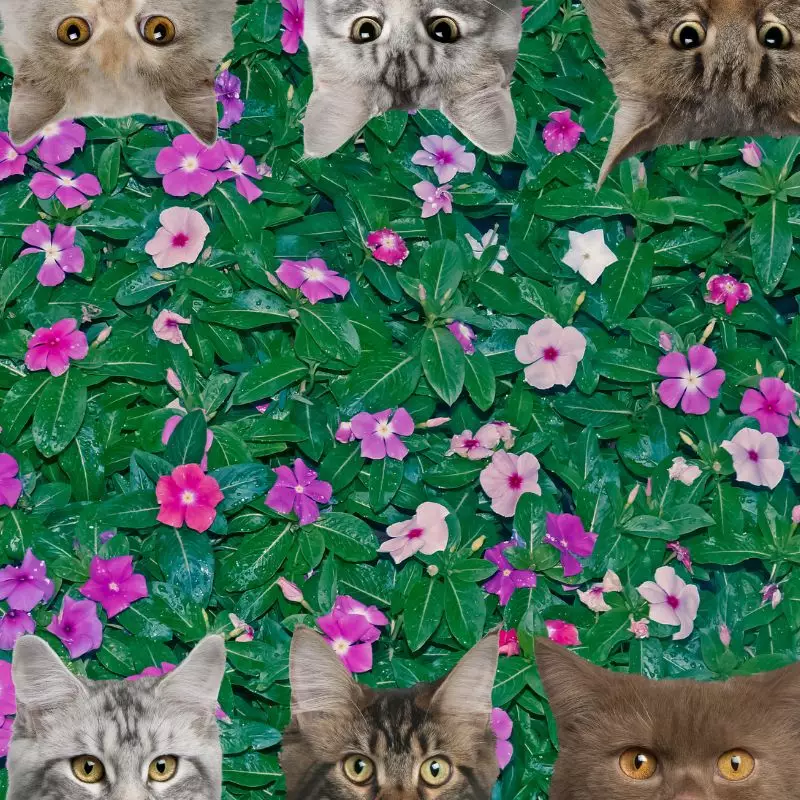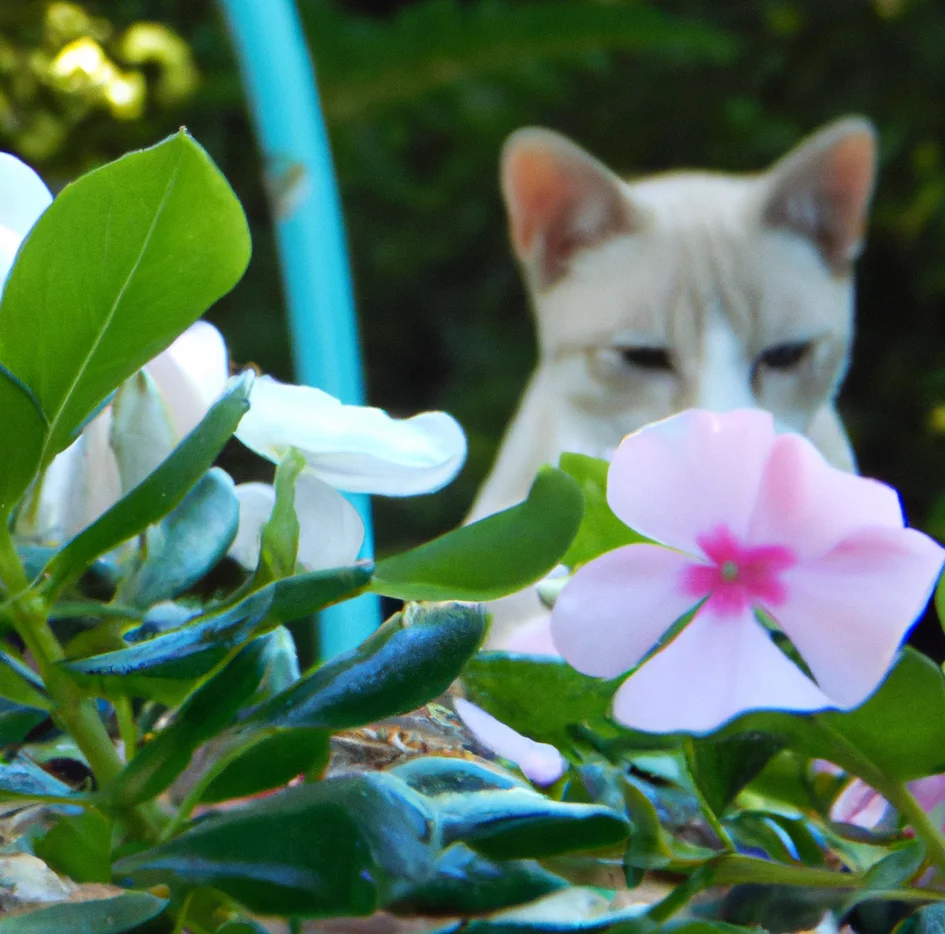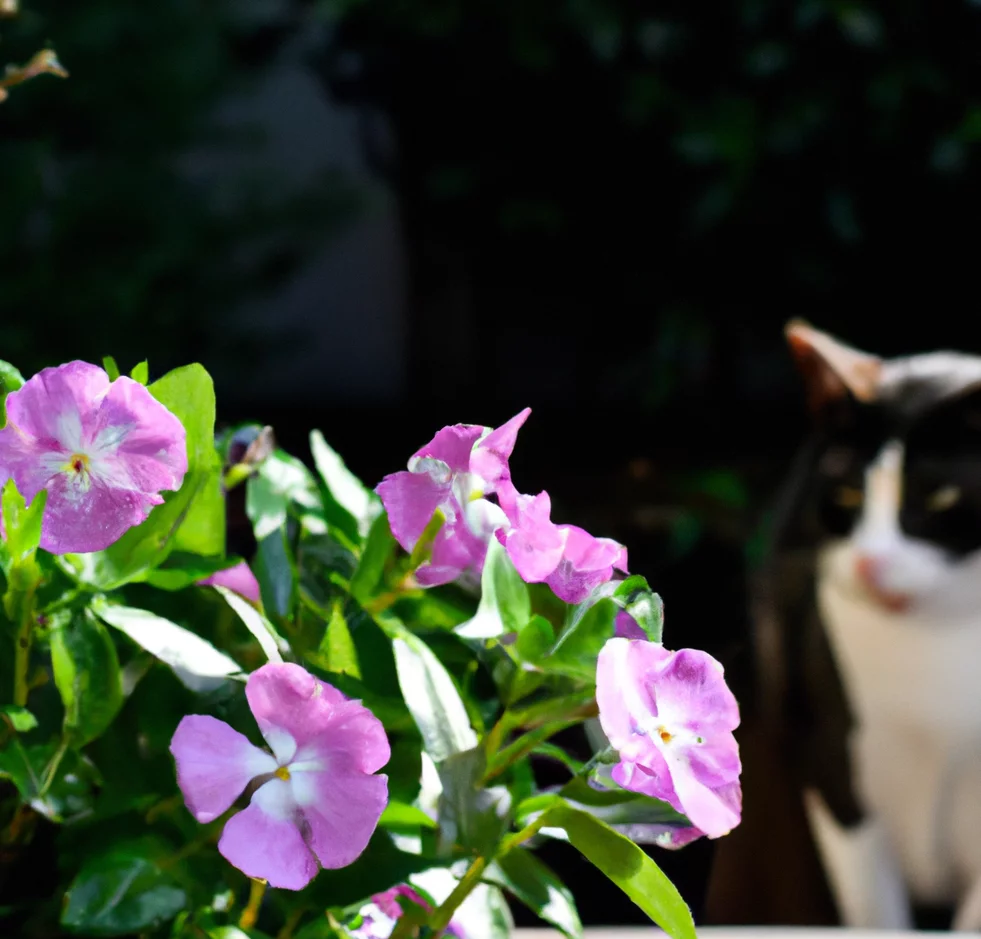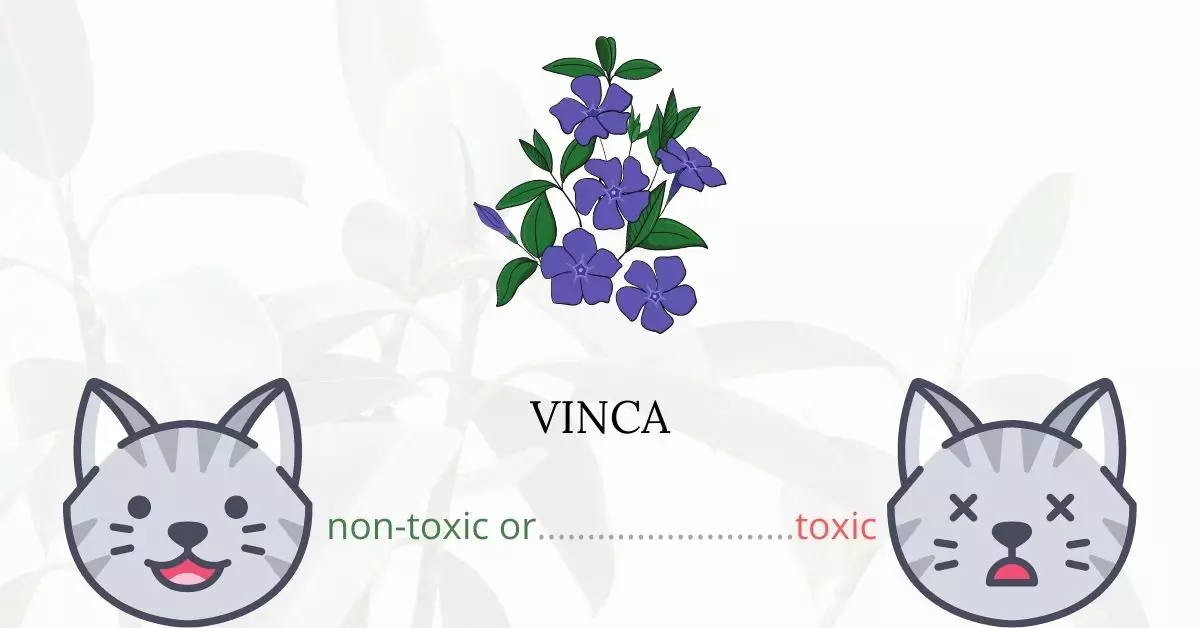Vinca, also commonly known as periwinkle, belongs to the Apocynaceae family and is recognized for its vibrant, flowering presence. To answer the pressing question—yes, vinca can be toxic to cats, along with being a risk to people, dogs, and horses. However, it’s crucial to note that not all species within the vinca genus present the same level of toxicity; while Catharanthus roseus is highly toxic, Vinca major and Vinca minor are rarely so.
This article has been carefully crafted in collaboration with a team of experienced Doctors of Veterinary Medicine (DVMs), ensuring the provision of accurate and current information on the potential risks vinca, and various other plants, pose to cats. The inputs from these veterinary specialists, coupled with extensive research from high-authority websites such as ASPCA and PetMD, enable a well-rounded understanding of the impacts and preventive measures associated with plant toxicity in cats.
Vinca’s toxic properties are attributed to the presence of alkaloids, which are used in creating chemotherapy treatments, diabetes medications, and high blood pressure remedies. If ingested by cats, these alkaloids can induce poisoning. However, handling vinca plants is generally safe as they do not cause harm through touch. Nevertheless, it’s imperative to wash hands thoroughly after planting or trimming to remove any residual toxins.
Clinical Signs of Vinca Poisoning in Cats

Vinca poisoning in cats, albeit rare, can present a range of clinical signs, primarily when they ingest parts of the plant, as contact or inhalation alone usually do not induce toxicity. Each sign manifests due to the adverse reactions provoked by the toxic alkaloids present in the vinca plant.
- Vomiting: This occurs as the body’s natural response to expel the ingested toxins from the system, preventing further absorption into the bloodstream.
- Diarrhea: A manifestation of gastrointestinal irritation due to the plant’s toxins, diarrhea is the body’s mechanism to rid itself of harmful substances swiftly.
- Hypotension (Low Blood Pressure): The alkaloids may interfere with normal cardiovascular function, causing a decline in blood pressure levels, leading to hypotension.
- Cardiac Irregularities: The toxic components can disrupt the regular rhythm of the heart, creating potential life-threatening situations.
- Depression: Altered neurological functions due to the toxins can result in behavioral changes such as depression in affected cats.
- Tremors: The presence of toxins in the system can interfere with normal neuromuscular functions, causing involuntary muscle contractions or tremors.
- Seizures: Severe neurological impairment induced by the toxins can lead to sporadic electrical activity in the brain, resulting in seizures.
- Progressive Paralysis: Extended exposure to the toxins may progressively impair motor functions, leading to paralysis.
- Coma: In severe cases of poisoning, the accumulation of toxins can cause extreme neurological depression, pushing the cat into a comatose state.
- Death: In extremely rare and severe instances, the overwhelming presence of toxins can lead to multi-organ failure and, subsequently, death.
While the occurrence of serious intoxication from vinca ingestion in cats is significantly infrequent, and lethal intoxication is even more uncommon, it is essential for cat owners to be aware of these signs and seek immediate veterinary care if they suspect vinca poisoning in their pets. The earlier the intervention, the better the chances of recovery for the affected cat.
First Aid and Treatment of Vinca Poisoning in Cats

There is no precise antidote for periwinkle intake, however major medical care is rarely necessary. If the consumption was recent, remove any remaining plant debris from the mouth; if vomiting does not occur, the veterinarian may give hydrogen peroxide orally to induce vomiting.
Make sure the cat drinks lots of water to minimize dehydration induced by diarrhea. Kapectolin may be also given by the vet to relieve your cat’s gastrointestinal distress and diarrhea.
Sucralfate can also be used to treat gastrointestinal discomfort because it combines with stomach acids to generate a paste-like substance that functions as a barrier between the stomach and its contents.
Recovery from Vinca Poisoning in Cats

Cats only consume a small amount of vinca in most cases, thus they will recover after the gastrointestinal symptoms have disappeared. In some severe cases, long-term liver damage, a compromised immune system, and even death may occur.
Prevention of Vinca Poisoning in Cats
Consider utilizing physical barriers such as ornamental fences to prevent cats from getting too close to the plant. It is better to keep your home cat-friendly and remove the plant completely. Avoid growing or bringing it into your house. Always do your research before buying or bringing plants into your home.
If you love plants but have cats at home, check out these lists:





